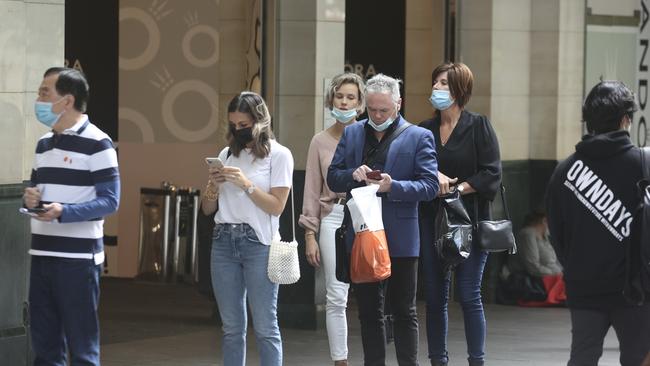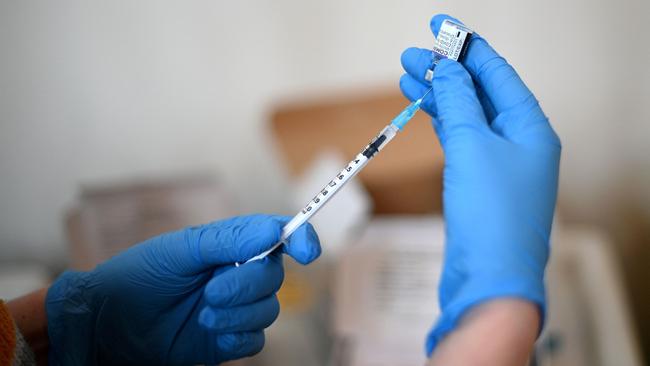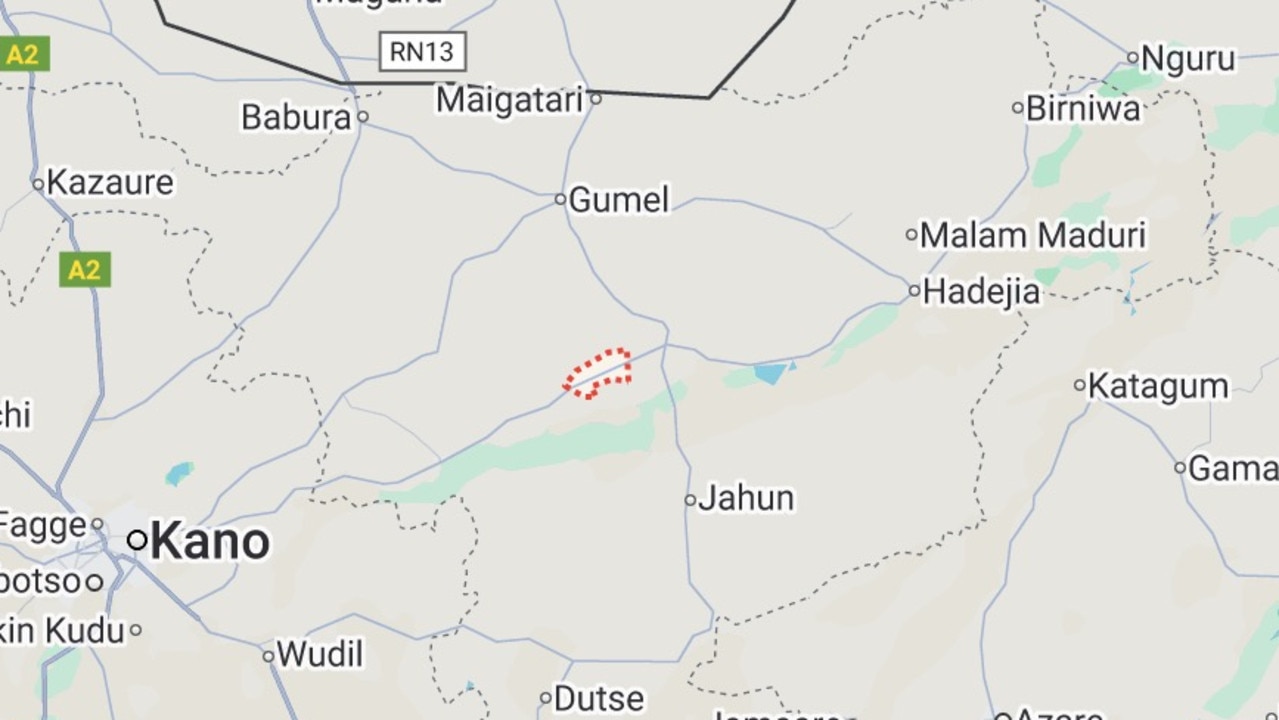Top epidemiologist says Omicron denial could lead to a ‘pandemic 2.0’
A leading epidemiologist has accused people of becoming “too blasé and laid-back” about the new variant, with potentially dire consequences.

World
Don't miss out on the headlines from World. Followed categories will be added to My News.
A US epidemiologist has issued a stern warning that being in “denial” over the potential dangers of the Omicron variant could cause what he has dubbed the “pandemic 2.0”.
Dr Eric Feigl-Ding, a senior fellow with the Federation of American Scientists, said attitudes towards the virus have become too “blasé and laid back”, which he sees as a danger point given initial reports of the new variant’s greater transmissibility.
“I have this sinking feeling that we’re in the denial phase of a pandemic 2.0,” shared Dr Feigl-Ding on Twitter.
“I think that’s what the #Omicron is. It’s a 2.0 pandemic virus, potentially.”
“I think people are just like too blasé, too laid back about Omicron,” he continued.
“Some people are like, we’re not, but so many people are, and we know it’s (got) so much more (of a) transmission advantage, whether it’s natural transmission or evasiveness against immunity.”
2) I think there's a lot of like misinformation on the severity because Delta first of all was much more severe than the original Wuhan strain…. So even if it's not as severe as Delta it could cause an enormous amount of havoc if it's milder quote unquote like the Wuhan strain.
— Eric Feigl-Ding (@DrEricDing) December 8, 2021
5) Which is ultimately going to kill more people? Most people think Oh the more severe virus, but the exponential math tells us it's the more contagious virus that's not as severe as the other one, that's the one, once you run up, the numbers of infected.
— Eric Feigl-Ding (@DrEricDing) December 8, 2021
‘The impact is still difficult to know’
Whether the Omicron virus could present a greater threat than the more severe Delta variant has been debated by health authorities. Both variants have been classified as “variants of concern” by the World Health Organisation, but the available data on Omicron is limited.
Speaking to the media on Thursday, the Director-General of the World Health Organisation, Dr Tedros Adhanom Ghebreyesus, said the body was expecting to see the number of countries reporting the Omicron variant grow past the current tally of 57.
“Certain features of Omicron, including its global spread and large number of mutations, suggest it could have a major impact on the course of the pandemic,” he said.
“Exactly what that impact will be is still difficult to know.”
While the variant has been rapidly spreading in South Africa, with high reinfection levels, he maintained more data was needed.
“We’re now starting to see a consistent picture of rapid increase in transmission,” he continued.
“Although for now the exact rate of increase relative to other variants remains difficult to quantify.
“There is also some evidence that Omicron causes milder disease than delta. But again, it’s still too early to be definitive.”
“Any complacency now will cost livesâ€, says @DrTedros.
— Kai Kupferschmidt (@kakape) December 8, 2021
"Many of those who don't die could be left battling long COVID or post COVID condition - this is with debilitating, lingering symptoms that we're only beginning to understand."
"New data are emerging every day, but scientists need time to complete studies and interpret the resultsâ€, says @DrTedros.
— Kai Kupferschmidt (@kakape) December 8, 2021
"We must be careful about drawing firm conclusions until we have a more complete picture."
The notion of a less deadly but more transmissible strain being more dangerous has been broached by other members of the medical community as well.
This is because the number of people who die from Covid increases with the amount of people who are infected. The potential overwhelming of a country’s healthcare system is another factor of concern, said the Executive Director of WHO’s Health Emergencies Programme, Dr Mike Ryan.
“If they’re allowed to spread unchecked, even though they’re not individually more virulent or lethal, they just generate more cases, they put pressure on the health system and more people die,” he said during the same media briefing.
A more transmissible strain could also pose a greater danger to people with high-risk health conditions or comorbidities like cancer, diabetes, hypertension or a compromised immune system.

Third jab needed to tackle Omicron
Another key concern for Dr Feigl-Ding is the new variant’s ability to break through and infect individuals who are double-vaccinated, or those who have previously been infected.
“It’s pretty clear that there’s a lot of breakthrough against both natural as well as vaccine potentially, like I’ve seen some of the early data and it’s not good,” said Dr Feigl-Ding.
Despite this, he stressed the importance of booster shots and increased vaccine coverage.
Dr Adhanom agreed with that point, and said vaccines were also needed to protect individuals from the Delta strain, which continues to be of concern.
“We can prevent Omicron becoming a global crisis right now,” he said.
“We can prevent other variants emerging right now. This virus is changing, but our collective resolve must not”.

According to limited initial studies by the African Health Research Institute laboratory, the Omicron variant can partially evade the protection offered from two doses of the Pfizer vaccine.
Describing the protection as “robust, but not complete,” head of the laboratory Alex Sigal said a third dose of the jab would be needed to provide greater protection.
New research from Pfizer backed up these claims. Initial laboratory studies reported that three doses of the vaccine would be needed to produce the amount of antibodies to “neutralise” the Omicron variant.
“Although two doses of the vaccine may still offer protection against severe disease caused by the Omicron strain, it’s clear from this preliminary data that protection is improved with a third dose of our vaccine,” Albert Bourla, Pfizer Chairman and CEO, said.
“Ensuring as many people as possible are fully vaccinated with the first two dose series and a booster remains the best course of action to prevent the spread of Covid-19.”
Originally published as Top epidemiologist says Omicron denial could lead to a ‘pandemic 2.0’





